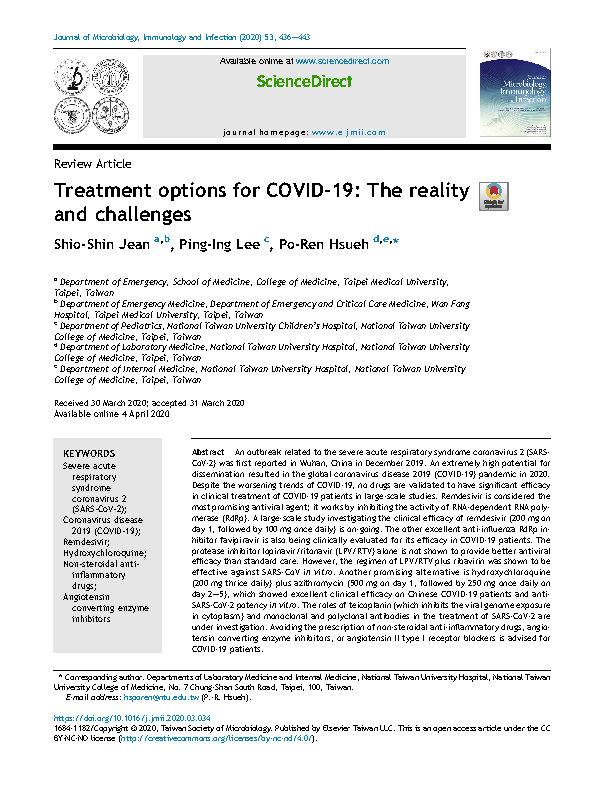16 June Treatment Options for COVID-19: The Reality and Challenges
Posted at 12: 38h
in COVID-19
Shio-Shin Jean, Ping-Ing Lee, Po-Ren Hsueh

ABSTRACT
An outbreak related to severe acute respiratory syndrome coronavirus 2 (SARS-CoV-2) was first reported in Wuhan, China, in December 2019. An extremely high potential for dissemination resulted in the global coronavirus disease pandemic. 2019 (COVID-19) in 2020. Despite worsening COVID-19 expansion trends, no medication is validated with significant efficacy in the clinical treatment of COVID-19 patients in large-scale studies:
- Remdesivir is considered the most promising antiviral agent. It works by inhibiting the activity of RNA-dependent RNA polymerase (RdRp). A large-scale study investigating the clinical efficacy of remdesivir (200 mg on day 1, followed by 100 mg once daily) is ongoing.
- Favipiravir, another excellent anti-influenza RdRp inhibitor, is also being clinically evaluated for its effectiveness in COVID-19 patients.
- The protease inhibitor lopinavir/ritonavir (LPV/RTV) alone does not show better antiviral efficacy than standard care. However, the LPV/RTV plus ribavirin regimen was shown to be effective against SARS-CoV in vitro.
- Another promising alternative is hydroxychloroquine (200 mg three times daily) plus azithromycin (500 mg on day 1, followed by 250 mg once daily on days 2-5), which showed excellent clinical efficacy in Chinese patients with COVID-19 and anti-SARS-CoV -2 potency in vitro.
- The roles of teicoplanin (which inhibits exposure of the viral genome in the cytoplasm) and monoclonal and polyclonal antibodies in the treatment of SARS-CoV-2 are under investigation.
- It is recommended to avoid prescribing nonsteroidal anti-inflammatory drugs, angiotensin-converting enzyme inhibitors, or angiotensin II type I receptor blockers for patients with COVID-19.


